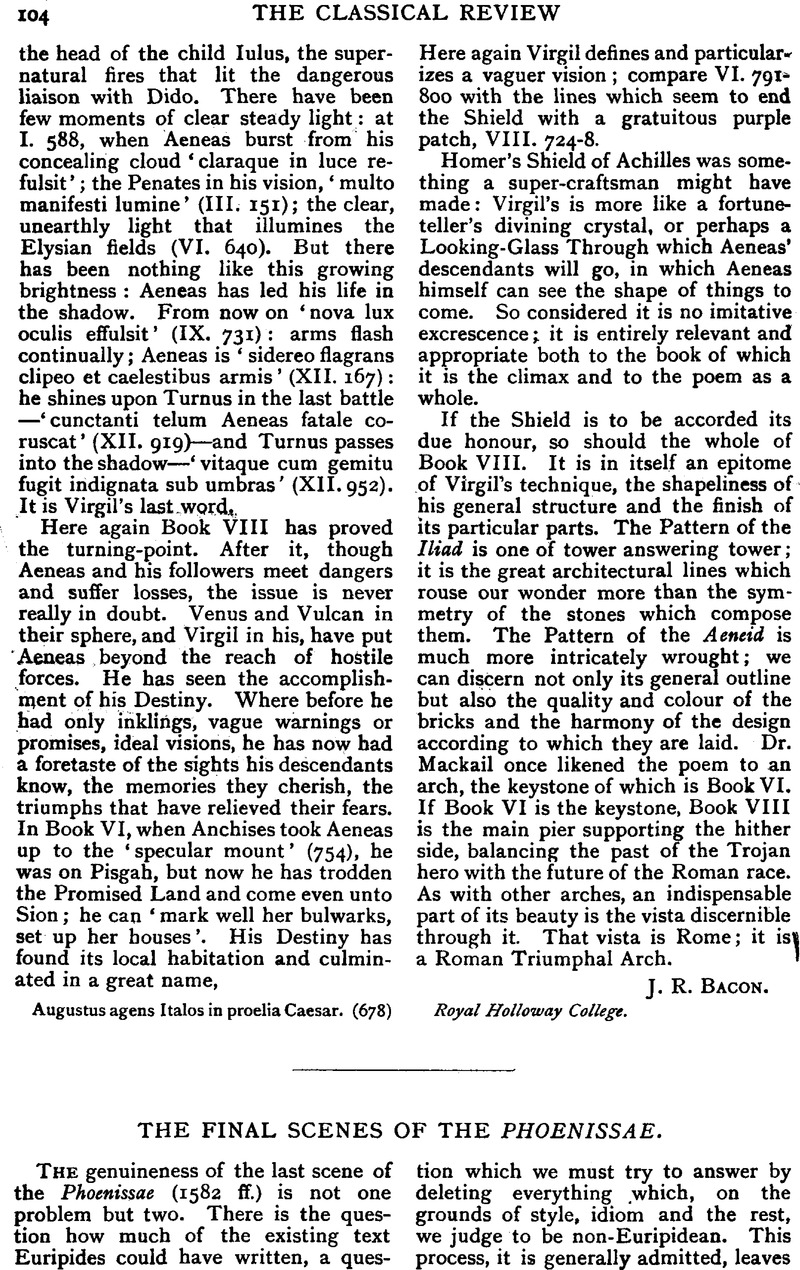Article contents
The Final Scenes of the Phoenissae
Published online by Cambridge University Press: 27 October 2009
Abstract

- Type
- Review Article
- Information
- Copyright
- Copyright © The Classical Association 1939
References
page 105 note 1 In order to have independent testimony on these stylistic matters I shall follow a combination of Wecklein, Pearson, and Powell.
page 105 note 2 Such a criticism will be found in my forth-coming Greek Tragedy.
page 105 note 3 Einleitung, p. 14.
page 107 note 1 Einleitung, p. 17.
page 107 note 2 How it happened that this fragment, though unintelligible, remained in the text is a separate problem on which I have nothing to say—except that it has remained.
page 109 note 1 1747–1757 return to the same topic, but these verses could hardly have followed immediately upon 1692. Here the point must have been left in suspense, but in our text it is not left; it is hastily abandoned.
page 110 note 1 Powell seems right in explaining 1595 ff. as made up from Ar. Ran. 1182 ff., and not vice versa. Pearson, who believes the contrary, says that Euripides must somewhere have given Aristophanes the cue for saying that ‘ Oedipus was fated to kill his father before he was born’. But the malapropism is a natural kind of joke, and Aristophanes' audience would have found it funny even though it were not a parody.
page 110 note 2 Since even an interpolator must have written Greek, though not necessarily elegant Greek, we may suggest παροῠσαν for the recalcitrant ἰο⋯σαν of v. 1637, understanding ⋯κε⋯νην or ![]() with μ⋯νουσα: ‘Enjoy your maidenhood today, while you await tomorrow, the day on which marriage with Haemon awaits you’.
with μ⋯νουσα: ‘Enjoy your maidenhood today, while you await tomorrow, the day on which marriage with Haemon awaits you’.
- 2
- Cited by


